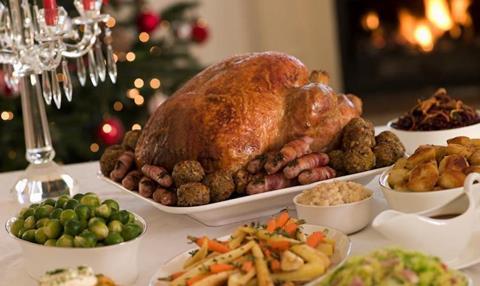Despite tightening Covid-19 restrictions across the country, December proved to be the busiest month on record for supermarkets with shoppers spending £11.7 billion on take-home groceries according to the latest market commentary from Kantar.

Changing tier restrictions, Brexit negotiations and reports of delays at Dover meant Brits shopped earlier than normal and the busiest day of the year was 21st December, when 15 million households hit the supermarkets.
Fraser McKevitt, head of retail and consumer insight at Kantar, said: “Uncertainty around a deal and images of lorries sat at Dover meant consumers shopped earlier than usual and Monday 21st December was the busiest shopping day of the year. Fifteen million households, more than half the entire population, visited a grocer at some point that day and spent a collective £819 million. This is a real step change from recent years when consumers have typically completed their ‘big shop’ closer to Christmas Day. We had expected 23rd December to be the most popular date in 2020, based on where the holiday fell in the week this year.
"Six and a half million households still bought a turkey for roasting during December..."
“Without guests to host, it seems many families decided to pare things back slightly and the performance of traditional dinner items reflects this. Six and a half million households still bought a turkey for roasting during December, a similar number to last year, but spend on whole birds was down 5% and some seized the opportunity to mix it up, with sales of pork roasting joints increasing by 19%, fresh fish by 20% and whole chickens by 7%.”
Online sales
With restrictions in place, shoppers also had to book early to secure a coveted delivery slot and online grocery shopping was more spread out throughout the break, with the highest levels reached on Tuesday 22nd and Wednesday 23rd December.
McKevitt continued: “Cementing an extraordinary year in terms of sales and capacity growth, digital orders accounted for 12.6% of grocery spend during December, compared with only 7.4% in 2020. With sales over the past 12 weeks rising by 36.5%, online specialist Ocado finished the year as it started – the UK’s fastest growing retailer. This impressive growth has come despite only selling to less than 3% of households and is driven by the loyalty of its customers, who buy more than half their groceries through the retailer.”
Retailer review
Tesco sales rose by 11.1% during the four-week festive period, driven by the continued success of its premium Tesco Finest brand, which found its way into more than a quarter of shopping baskets during the 12 weeks.
Sales at Sainsbury’s increased by 10.7% year on year and at Asda by 7.8%, with market share standing at 15.9% and 14.3% respectively. Sales at Morrisons increased by 13.1% compared with the same time in 2019 as its market share moved up by 0.1 percentage points to 10.4%, its highest level since June 2019.
Lidl increased its sales by 15.2% and it gained 0.2 percentage points of market share thanks to its promotional voucher scheme, while Waitrose’s share remained flat at 5.0%, with total sales rising by 11.7%. Co-op sales were up by 9.8% and Aldi by 6.3%, meanwhile Iceland achieved growth of 20.8%.
This story was originally published on a previous version of the Meat Management website and so there may be some missing images and formatting issues.















